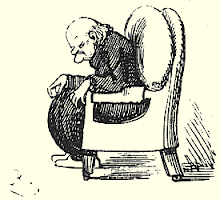I know some of you get turned off when I get serious, but tough shit.
So, I'm sure by now you've all heard about the police pursuit that involved a 7-year-old boy who stole his parent's white Dodge Intrepid because he didn't want to go to church. If you don't know what I'm talking about, here's the fucking You Tube clip.
As I type right now, the kid is having an "exclusive interview" on the Today Show and Ann Curry and Meredith Vieira having been yucking it up all morning about how adorable the kid is and playing up the story for its novelty and humor value, making stupid, annoying puns and generally being cloying and irritating. In the original clip that aired on the local news stations, you can hear the anchors chuckling about the incident.
Now, I hate taking a dump on everybody's fun-time happy-hour, but this child could have killed not only himself but a bunch of other people on the road-- pedestrians, other motorists, a mailman. However, if you look at the vast majority of the comments on You Tube, they are of the "hahaha so cool kid!" and "rofl from video screen!" and, the crown jewel of them all: "Run, Forest! Run!"
I'm positively in stitches.
We're a "Kids Say (and Do) the Darndest Things" world, and we always have been. Look at how the world was obsessed with a 5-year-old Wolfgang Amadeus Mozart, playing concerti for the Archbishop of Salzburg. The only thing kids do that adults do that we don't like is have sex-- other than that, dress a kid up in a suit and have him say a four-syllable-word and we're howling with laughter. Put him behind the wheel of the family car, and we put him on television and give serve up his fifteen minutes with a side of tater-tots. And, of course, the kid's an angelic, blond-haired boy, which makes it all the more appealing. Perhaps if he wasn't quite camera-ready, with a snaggle-tooth and a dent in his forehead, the story might not be so readily exploited-- but, with that punim, how can we resist?
I guess if this story had a less benign ending, which it easily could have had, the media outlook and societal reaction would be a tad different. On September 1st, 2000, Cincinnati Police Officer Kevin Crayon was at a convenience store, making a purchase. Upon exiting the store, he noticed that the driver of a vehicle in the parking lot looked far too young to be operating a motor vehicle. In fact, it was a child of 12 years old. Officer Crayon approached the vehicle and ordered the child out. The kid threw the car in reverse and Crayon, thinking only of the child's safety, lunged into the car to try and grab the keys, but it was not to be. The child floored the accelerator and Officer Crayon was dragged, either caught on an object inside the car, or still holding on for dear life. He screamed for the child to stop, but the child would not obey. Crayon, a father of three, was dragged for over 800 feet. In a desperate attempt to save his own life and the lives of other people on the road, Officer Crayon unholstered his revolver and shot the boy in the chest. The car made a violent swerve, and Crayon fell to the street, his head slamming against the pavement where he died. The young boy, mortally wounded, managed to drive the car to his parents home, where he collapsed and died as well.
I don't doubt that few people outside of Kevin Crayon's friends and family members, and this boy's friends and family members remember this incident. It had a very short shelf-life, one dead cop, one dead kid-- both black, in a poor, urban area of Cincinnati. A violent, tragic, unhappy end to two probably uncameraworthy lives. The story, too, of a seven-year-old boy who stole his parents car because he didn't want to go to church will have a short shelf-life, too, but the jovial attention focused right now on the child at the center of the tale is unfortunate and irritating, and shameful in light of the destruction he could have caused.
When the media reports on a story, they dictate how we ought to react. If they think something's sad and serious, they report on it in a way that communicates to us that we are supposed to treat the material in the same regard. Not only does the way in which the media report tell us how to react, but what they choose to report is of paramount importance. A local arrest of a scholar, a local police chase of a seven-year-old boy, a local storm, a local murder-- theses things somehow get plucked to make it onto the national stage, and then we are presented with the dilemma of how to react-- do we accept the demeanor of the news anchors and roll with it, or do we stop and think further about the stories and develop our own opinions after careful deliberation and scrutiny?
Meredith and Ann might be giggling with this kid on national television, but I'm sorry-- it just isn't funny.
Lauren Soloy’s The Newest Gnome: A Quiet Adventure
5 months ago













